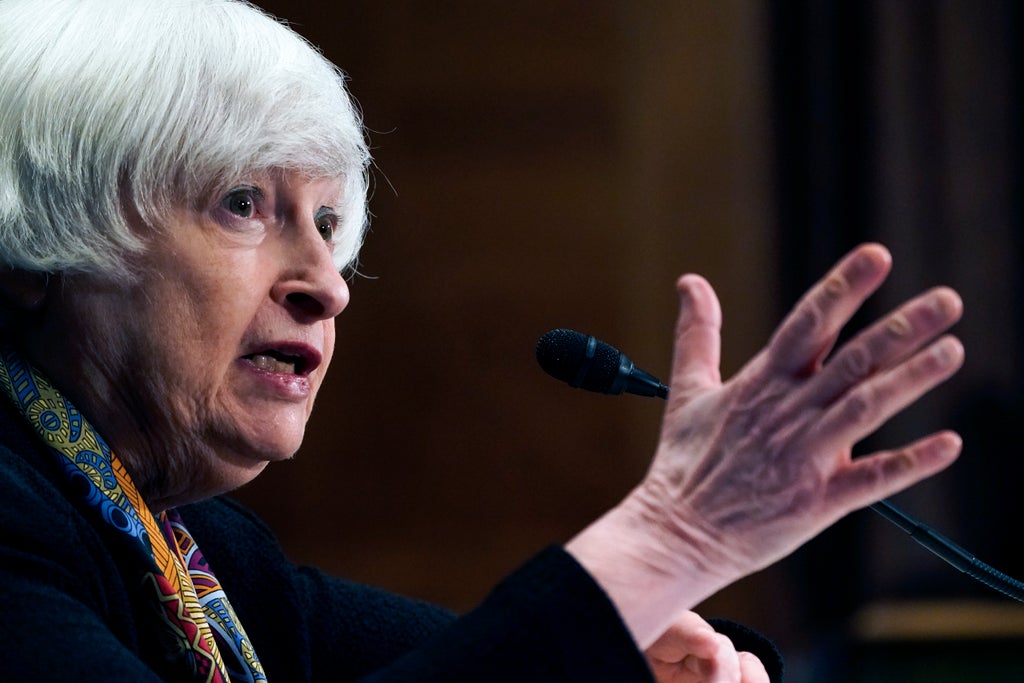
US Treasury Secretary Janet Yellen has warned that eliminating abortion access will damage the nation’s economy and advancements in women’s reproductive healthcare and economic wellbeing.
“Eliminating the right of women to make decisions about when and whether to have children would have very damaging effects on the economy and would set women back decades,” she told the Senate Banking Committee on Tuesday, 10 May.
Increased access to reproductive health care and the US Supreme Court’s landmark 1973 ruling affirming constitutional protections for abortion care – which the court’s conservative majority appears poised to overturn – “helped lead to increased labor force participation and enabled many women to finish school. That increased their earning potential,” Ms Yellen said.
“It allowed women to plan and balance their families and careers” and enabled a “favorable impact on the well-being and earnings of children,” said Ms Yellen, pointing to research showing that “denying women access to abortion increases their odds of living in poverty and needs for assistance.”
A 2021 study from the Institute for Women’s Policy Research found that state-level restrictions on aborion care cost the nation’s economy $105bn annually by reducing women’s participation in the workforce and their earning while increasing turnover.
Republican Senator Tim Scott said her remarks appeared “callous”.
“What we are talking about is whether or not women will have the ability to regulate their reproductive situation in ways that will enable them to plan lives that are fulfilling and satisfying for them,” she replied. “And one aspect of [a] satisfying life is being able to feel that you have the financial resources to raise a child, that the children you bring into the world are wanted, and you have the ability to take care of them.”
A leaked draft of a Supreme Court opinion in Dobbs v Jackson Women’s Health Organization, written by conservative Justice Samuel Alito and obtained by Politico, would overturn the landmark 1973 ruling in Roe v Wade and its affirming ruling in 1992’s Planned Parenthood v Casey.
Roe affirmed a constitutional right to abortion access under the 14th Amendment without excessive government intervention, effectively overruling many state laws that banned abortion, and prohibiting states from banning the procedure before fetal viability at roughly 23 weeks of pregnancy.
Casey upheld the “essential holding” in the Roe ruling and prohibited legal constrictions that constitute an “undue burden” on abortion access.
Anti-abortion laws and “trigger” bans designed to take effect without Roe protections will quickly or immediately outlaw abortion in 26 states, forcing patients to travel hundreds of miles or across the country to access legal care. Reproductive health research organisation the Guttmacher Institute estimates 40 million people who are or could become pregnant live in states where abortion will be made illegal.
A decision from the nation’s high court in the Dobbs case is expected in June.







